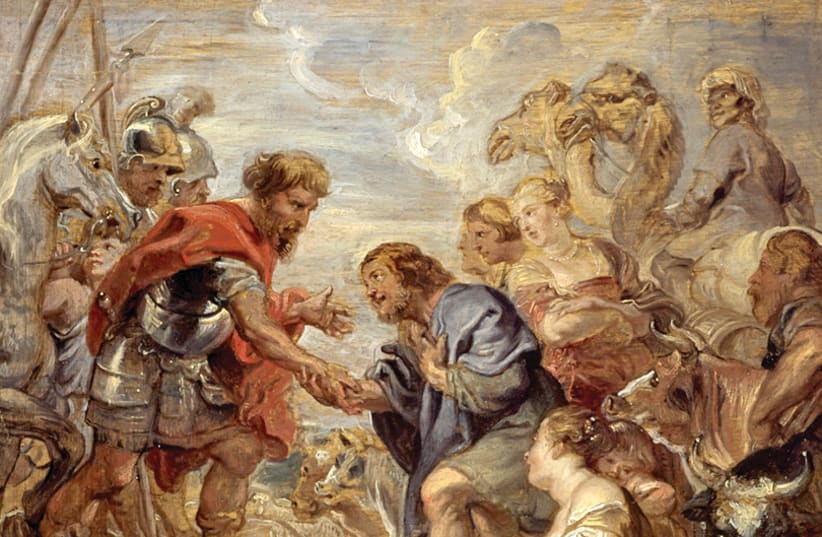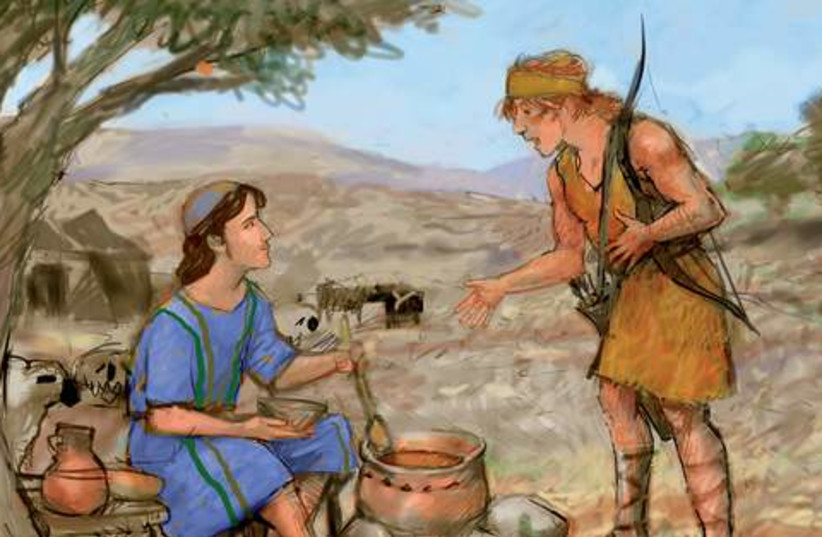Parashat Vayishlah tells us about Jacob being commanded by God to return to Canaan after a long exile abroad.
Jacob is about to meet his brother, Esau, who has been harboring deep hatred for him since their early years.
In an attempt to reconcile with Esau, Jacob sends him hundreds of sheep and cattle from his vast herds, a gift that got to Esau before their meeting.
The gift achieved its purpose, and when Jacob and Esau finally meet, Esau urges Jacob to take it back: “But Esau said, ‘I have plenty, my brother; let what you have remain yours’”(Gen. 33:9).
Jacob, however, insists that he keep the gift. “Thereupon Jacob said, ‘Please, no! If indeed I have found favor in your eyes, then you shall take my gift from my hand... for God has favored me [with it], and [because] I have everything’” (ibid. 33:10-11).
There is a small difference between how Esau describes his vast assets and how Jacob does. Esau uses the phrase “I have plenty,” while Jacob says “I have everything.”
If we were to superficially compare these two perspectives, we would probably find Jacob’s utterance somewhat arrogant. He says he has everything, while Esau’s utterance seems to reflect a certain humility. He recognizes the fact that he has wealth, but he does not presume to say he has everything.
The commentators actually found the reverse to be true. One unique commentator was Rabbi Shlomo Ephraim Luntschitz (rabbi and rosh yeshiva in Prague, 17th century) who, in his biblical commentary, Keli Yakar, explained that when we look closely at Esau’s words “I have plenty,” we see he is expressing lack. Though he was very wealthy, he did not feel he had all he needed, but, rather, that he had plenty of what he needed. Jacob, on the other hand, saw his wealth as satisfying all his needs and therefore expressed lacking nothing.
These two outlooks of Esau and Jacob express two ways of looking at what a person accumulates in his lifetime.
One could look at what he has and always see the cup half full – focusing on what is still lacking. This leads to a person being unable to ever feel satisfaction or joy, since even when he does accumulate wealth or experience happy occasions, it is always accompanied by a sense of what is missing.
Jacob’s perspective, however, sees the wealth he has accumulated, his status and his family as gifts from God and as fulfilling all his needs at that point in his life. In his own words, “for God has favored me [with it], and [because] I have everything.” This sort of attitude leads to great joy and satisfaction in life and, even beyond that, to actually experiencing joyful events and people more fully.
At the end of the Grace after Meals, recited after every meal in which one eats bread, we ask God for the following:
“May the Compassionate One bless... even as our patriarchs, Abraham, Isaac and Jacob, were blessed in everything, by everything and with everything, so may He bless all of us together with a perfect blessing....”
The word “everything” appears in the Torah in these three variations, respectively, in connection with the three patriarchs – Abraham, Isaac and Jacob – in relation to the abundance in their lives.
In light of the distinction between Jacob’s and Esau’s approaches, we can understand another layer of this request. We are asking God to help us live our lives with a sense of “I have everything,” and thus find true happiness.
The writer is the rabbi of the Western Wall and holy sites.

